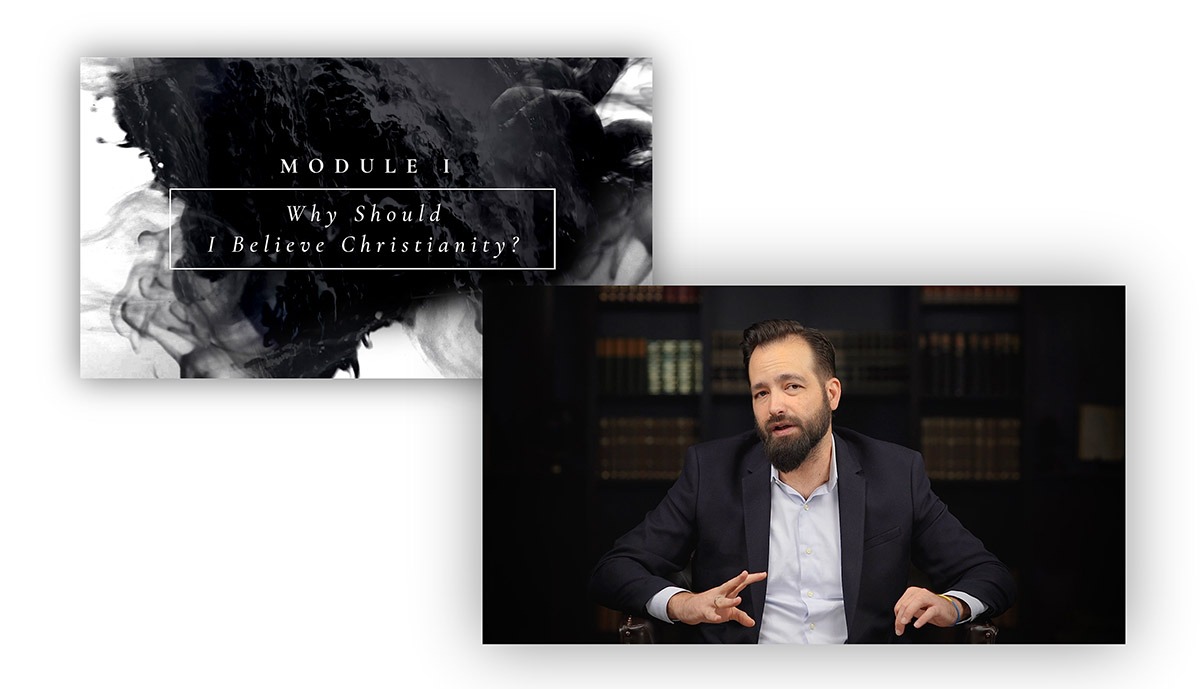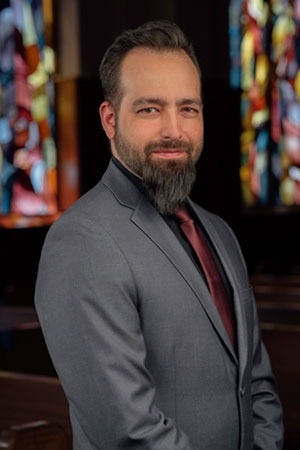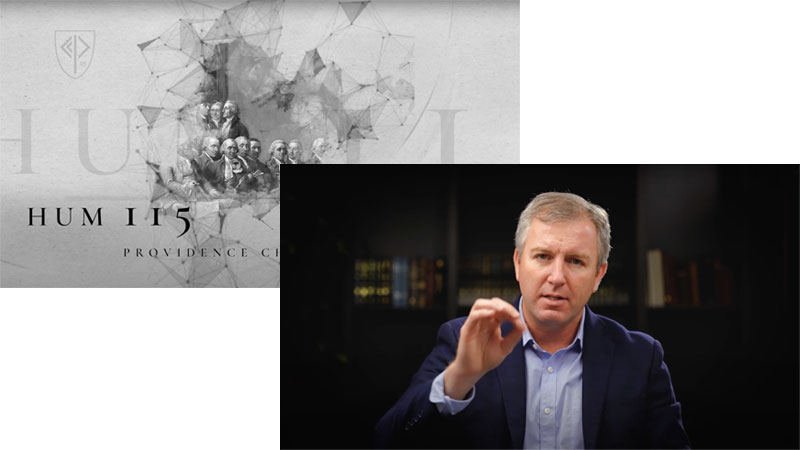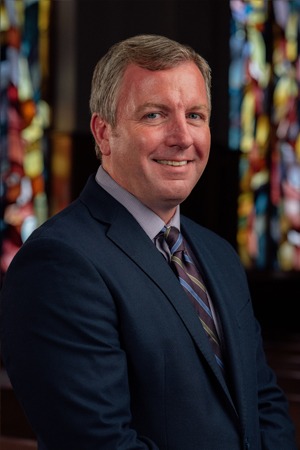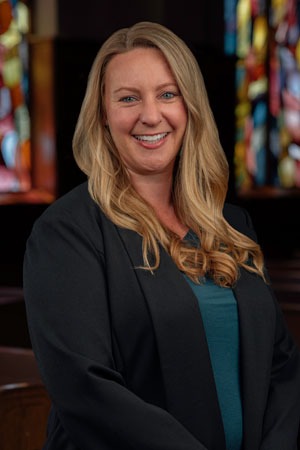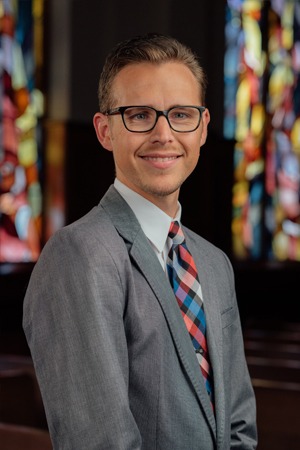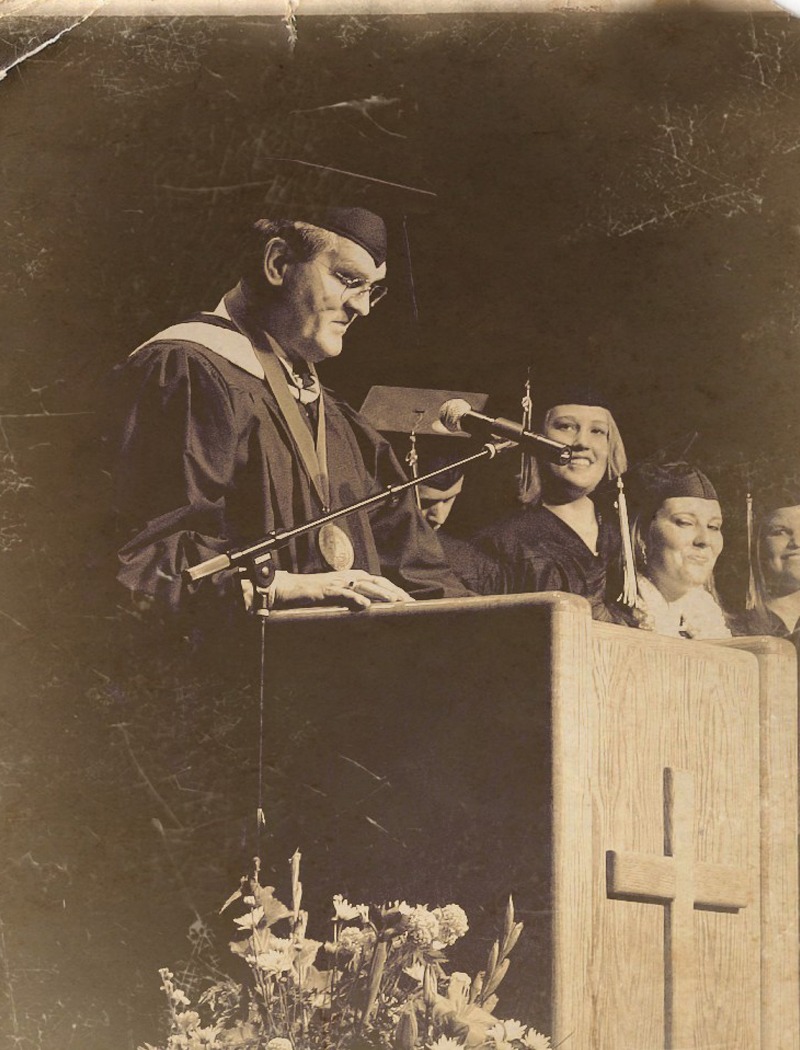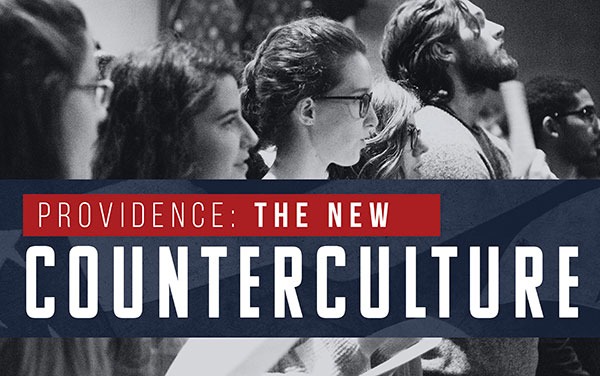Students, faculty, and staff, welcome to our first chapel in the sanctuary of Witherspoon Hall you are all part of an historic moment in the life of Providence Christian College.
We are grateful to God for His providence in opening the many doors it took for our college to remain in Pasadena and relocate to this beautiful neighborhood. As I look back, it seems almost miraculous how many things had to conspire for it to work out.
After three nights in your “new digs,” I hope you are now settled in and ready for the start of classes tomorrow on our new campus. I realize you have a lot on your mind, and you are still getting settled in. Classes start tomorrow, so I hope my talk can begin to prime the pump and inspire you for the semester ahead. What we are involved in is “high adventure.” There is nothing more exciting or important at this stage of your life. So, I pray that you embrace your calling as students.
Tonight, I want to answer three questions that I have been asked a number of times over the past month and questions that you might be thinking:
- Why is the church that had been here since 1927 no longer here?
- Why did we just send out an email to prospective students saying, in part, that we were countercultural? What does that mean?
- Why have we renamed this building “Witherspoon Hall?”
Let’s begin with the first question. Why is the church that built this beautiful building no longer here?
According to Yuval Levin in his 2017 book, The Fractured Republic, if you want to understand the current political polarization ripping our country apart, you have to go back to the 1950’s when America, for the most part, shared a consolidated country.
Following two world wars, America was politically unified, economically prosperous, and culturally together.
At the heart of the cultural unity and helping set the tone and direction of our common culture together were the historical mainline churches made up of the methodists, presbyterians, Episcopalians and congregationalists—historic denominations that dominated the religious landscape.
As a visual representation of this, and the influence and wealth of these four denominations, just look at the four block radius of where you sit tonight:
To our West, All Saints Episcopal Church (1924), to our south Pasadena Methodist Church (1923), to the east, right next to the New School of Cooking, The Pasadena Presbyterian Church (1908), and, right here, where you sit, this building built in 1927—80K sq. feet, a huge building that must have taken a great deal of money to build. —all these churches, grand buildings in the heart of old Pasadena, demonstrate the cultural importance and influence of these churches in the early to mid-twentieth century.
They were so important that when New Year ’s Day and the Rose Parade first fell on a Sunday and these churches protested the disruption of the Lord’s Day services, the city agreed that whenever New Year’s fell on a Sunday they would move the parade to Monday. The agreement is still in place today.
By the 1950’s, these churches were at the height of their influence and membership.
Look around and imagine that, back in the 50’s, this sanctuary was filled for two services each Sunday and the building bustled with Sunday schools classes of all ages. Now, the church is so small that they have been meeting for years in the little chapel, and, a year ago, they sold the property to developers.
What happened?
Well, according to the Senior Pastor, who I talked to about this very fact about a month ago, in the 1960’s when the counterculture hit, when the radicals pushed against the moral and cultural consensus of American culture that was pro-traditional family, marriage, gender and sexuality, this church sided with the so called radicals — the progressives.
And each time they did, she told me, waves of people left, many of them going over to Lake Avenue Congregational Church just on the other side of the freeway, a more conservative theological congregational church. After a handful of these exoduses, the church had shrunk beyond recognition.
This decision to side with the sexual and cultural revelation of the 60’s has emptied this church and other once thriving mainline churches in Pasadena and around the country.
And now they can barely afford to keep their doors open, many of them renting out space for years just to pay the bills. And some, like this church, have decided to sell their buildings. But, as the pastor of this church told me, she has no regrets. Becoming progressive was the right thing to do.
According to Yuval Levin, as the 1960-70’s sexual and cultural revelation sweep through our culture, “the long march through our cultural, academic and political institutions—wreaked havoc wherever it went. By the early 1980’s, many in America didn’t like what was happening and decided to push back. It was at this time that we saw the rise of the ‘Moral Majority’ led by Jerry Falwell and the election of Ronald Reagan.”
But it was short lived; the march of the 60’s continued on to where, today, the once radical and countercultural movement is now the mainstream and now controls our culture—from Hollywood, to our nation’s colleges and universities, to the mainstream press, to the politics in many states and the court system.
What Tom Wolfe called the “Me Generation” in the 70’s is now the reigning world view—expressive individualism, selfishness, materialism, and lack of any interest in our common life together as Americans is now the prevailing narrative. People would rather watch Netflix, play video games, or watch sports than spend time serving the public on committees or helping a neighbor in need or running for public office, or serving on jury duty or serving in their church, or supporting another voluntary association.
And this new reigning cultural narrative, built on a rejection of Biblical truth, ethics, virtue and responsibility to others, has now led to a place in our culture where the church not only does not have a place at the table for shaping culture but is actually being kept out.
Just yesterday, I read an article where a Senator for California applied a “religious test” to a recently nominated judge, when she asked him if it was possible for him to be an impartial judge because he was part of a church. This new kind of religious test is something our Constitution expressly forbids.
So now, it appears that, if you are a Christian and attend a church, you should be barred from serving in public office in the US. We are entering a dangerous period, my friends. Not only is Christianity barred from the public sphere, but now, so are Christians it appears.
Now this is where we come to our second Question about Providence as the counterculture: If the counterculture of the 60’s is now the mainstream culture, then who is the counterculture today?
Christians! And Christians who hold a high view of Scripture are the most counterculture of all. What does it mean to be counter cultural today?
If you stand for a biblical view of marriage, gender, sexuality. If you believe in moral and ethical standards that are rooted in more than situational ethics. If you believe freedom must take place within a framework of virtue or it just becomes license and nihilism. If you believe in a Constitution that limits the innate selfishness of humans and factions. If you believe in character education in our schools. Then, you are now the counterculture.
So, welcome to the new counterculture. The mainstream culture is not going to like it. Prepare to be mocked, ridiculed, accused of being all kinds of nasty things. It’s already happening.
According to Levin, in his Fractured Republic, as the mainstream culture tries to force us into its mold, we will need the “umbrella of the first amendment” to protect us. We will need to defend our rights when we suffer for being Christians, we need to defend our founding documents, the Declaration of Independence, and Constitution that protect the rights of religious minorities and protect liberty for all.
And Providence is working with the other Christian colleges in California to protect our religious freedom rights that are under attack. But this can’t be, says Leven, our only response, or we will always be on the defense.
We need to be on the offensive as well. How?
According to Levin, by creating alternative communities that witness to a different narrative, one different than the mainstream culture that more and more is hostile to our way of life.
But how do we do this—how do we begin to form these alternative communities and where does the counter cultural narratives come from? Well, there is no better place to look than our scripture passage tonight.
Recall that in 1 Peter chapter 1, Peter was writing to a persecuted, small, fragile church. Throughout our passage this morning (1 Peter 1: 3-7; 14-16), Peter reminds his readers of the Gospel, their call to live differently, and their duty to live like Christ, even though they will be rejected. Despite the ridicule they would receive, Peter exhorts them to form a community that is so radical that, even as they are persecuted, their opponents in the culture would see their good works and glorify God in Heaven.
So, to be countercultural today means to live by a different narrative, to live together in a different alternate community, and to live in such an honorable, ethical, and moral way that, even though people get mad at us and say all kinds of negative things about us, they can see our character and see our importance to the city.
So, we have answered two of our three questions; first, why did the First Congregational Church sell this building? And secondly, what does it mean for us to be countercultural? Now, for our final question: Why did we name this sanctuary Witherspoon Hall?
As we looked back in history for someone who stood for biblical, orthodox reformed faith– someone who understood that the gospel was not only vital for salvation but to engender and inspire and support good works–someone who understood how real counter cultural community is formed–someone who understood that our Republic could not stand without liberty, and that liberty could not continue without virtue, and that virtue had no future without religion… and someone who trained people in the need for Christians to take up the mantle of statesmanship and who believed in educating for liberty…We landed on one name: The Rev. Dr. John Witherspoon.
Here are some facts about Dr. Witherspoon: He was born in 1723 in Scotland and became a well-known Presbyterian pastor in the reformed tradition; He was highly educated, studying under some of the best minds in the world in Edinburgh. He emigrated here in 1768 to take over the presidency of the fairly new college, called The College of New Jersey, which soon after became Princeton College, a rival to Harvard and Yale. He was a vocal proponent of the Revolutionary war against England. He was the only clergyman to sign the Declaration of Independence, The Articles of Confederation, and the ratification of the US Constitution.
Listen to what he accomplished in his 25 years at Princeton as a professor of moral theology and President of the college. Here is a list of what his students went on to do:
- James Madison; Main author of the US Constitution, the Federalist Papers and then President of the US
- Vice President Aaron Burr
- Attorney General of the US—William Bradford
- 37 Judges, 3 of them Supreme Court Justices
- 10 Cabinet officers in the executive branch serving the president
- 12 Members of the Constitutional Congress that wrote the Articles of Confederation and US Constitution
- 28 US Senators
- 48 US members of Congress
Along with this, he trained scores of future church planters, pastors, and other leaders in the church and the community and in business. Imagine in 25 years if that was the impact that Providence had! Are some of you ready to receive that kind of training and answer the call to serve our nation and the church the way Witherspoon’s students did? How did he manage to do this?
Simply put, the answer can be found in what Princetown was teaching and the kind of community they had formed. He had created a countercultural community at Princetown, a community rooted in a radical narrative!
He did primarily three things: He developed Princeton, which he originally founded as a seminary, which was first and foremost, deeply Presbyterian, secondly, reformed, and thirdly, Gospel focused.
Dr. Witherspoon believed conversion was necessary and preached regularly to the students. He stressed the need for weekly church attendance. Additionally, he placed Bible and theology classes at the center of the education, knowing that the gospel changes hearts, minds, and character. As a result, Dr. Witherspoon empowered his students to hear God’s call on their lives.
Because of the reformed view of creation and general revelation, Witherspoon believed that all truth, wherever it could be found, was God’s truth. Thus they studied science, history, literature and philosophy and political theory to find God’s truth, affirm the true, beautiful and good, and learn to discern the error in rival narratives or worldviews.
Witherspoon’s Princeton was deeply committed to the new nation that was being formed at the time, and stressed that being citizens who loved one’s neighbors and served one’s country was part of being a Christian.
What was the impact of this training on Witherspoon’s students, particularly those who went off to become statesmen? As Scholar James Smylie writes of Witherspoon’s Princeton at the time, “It may be said that the Calvinism of Princeton was woven into the fabric of the American Constitution and continues to inform the American political experiment to this day.”
Now, having looked these distinctive of Witherspoon’s Princeton, does it sound a lot like this New Providence College we are building here? As I conclude this message, you will recall that I mentioned earlier an email that we sent out to prospective students about being counter cultural.
Well, we also sent out an email that said Providence is Christian, Classically liberal arts, and American. Now, I hope you can understand what we mean. Like the apostle Peter and John Witherspoon, the gospel and the Scriptures are the good news of salvation that is at the heart of our community—the good news of Christ transforms us, shapes us, and forms our new community. Our worship here tonight, our classes this week, and your church attendance next Sunday attest to this.
Just like Witherspoon, Providence clings to our commitment to the classical liberal arts and learning from the best of Western Civilization. And finally, like Witherspoon, we champion the founding documents of our country.
We are American and we champion our nation’s religious and political liberty because we believe they were (and are) deeply informed by a reformed Calvinist view of human nature, God, and human authority. We also believe that, if we don’t restore these documents and the ideas that animate them, then the foundation of our republic is in deep trouble.
So, we are a lot like Witherspoon’s Princeton. That is why we named this great hall, Witherspoon Hall. But hear me clearly tonight. Providence is committed to being deeply Christian. Teaching the classical liberal arts and championing liberty are not in vogue today, but that is fine.
We are comfortable being the counterculture. To us, what we do here is “high adventure” and incredibly important. We know that persecution my come, but we are ready for it. And, in the midst of it, we will continue to live out our narrative of the gospel, seeking the shalom of the city, doing good to all who revile us, and praying that our good works will glorify God, as Peter wrote.
We will keep making the case, like Wilberforce did so many years ago— “There is no republic without liberty; There is no liberty without virtue; and there is no virtue without Christianity.” Pasadena, California needs Providence. Our nation needs Providence.
May God Bless Providence; and may we be a holy nation set apart for his service and His glory!
